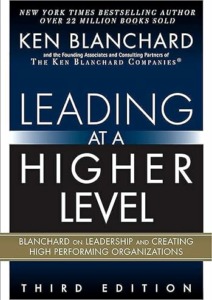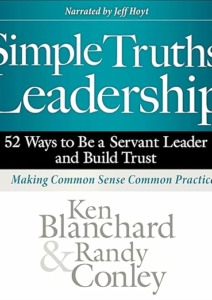In a recent episode of the Expert Insight Interview series, John Golden from Sales Pop Online Sales Magazine and Pipeline CRM sat down with Randy Conley, Vice President and Trust Practice Leader for Blanchard. The discussion delved into the critical importance of trust in leadership, the challenges of building trust in the workplace, and the evolving dynamics of leadership in today’s remote and hybrid work environments. This blog post will break down the key insights and actionable advice shared during the interview, providing a comprehensive guide for leaders looking to foster trust within their organizations.
The Importance of Trust in Leadership
Why Trust is More Crucial Than Ever
Randy Conley highlighted that trust has always been a cornerstone of effective leadership, but its significance has surged in recent years. This increase in focus on trust can be attributed to a widespread crisis of untrustworthy leadership across various sectors. The negative impacts of such leadership have underscored the need for trustworthy, effective leaders who can guide their organizations through turbulent times.
Key Takeaways:
- Trust is foundational for effective leadership and organizational success.
- The current spotlight on trust is a response to a crisis of untrustworthy leadership.
- Building trust is essential for leaders to attract and retain talent, especially in a flexible work environment.
The Great Trust Experiment: Remote Work
Trust and Autonomy in the Remote Work Era
The COVID-19 pandemic forced organizations to adopt remote work models almost overnight, creating what Randy referred to as “the great trust experiment.” Leaders had to extend a significant amount of trust to their employees, relying on them to maintain productivity and business continuity from home. This shift has fundamentally changed the dynamics of trust in the workplace.
Key Actions for Leaders:
- Extend Trust Proactively: Leaders must take the first step in extending trust to their teams. This involves making educated decisions about the trustworthiness of employees and giving them the autonomy to perform their roles effectively.
- Let Go of Control: The opposite of trust is control. Leaders need to relinquish control at appropriate levels, allowing employees to take ownership of their work.
- Communicate Clearly: Consistent and transparent communication is vital for building and maintaining trust, especially in a remote or hybrid work environment.
Building Trust Through Vulnerability and Authenticity
The Role of Vulnerability in Leadership
One of the key points discussed was the importance of vulnerability in leadership. Randy emphasized that vulnerability is often misunderstood. It doesn’t mean exposing oneself indiscriminately but rather being authentic and open about what one knows and doesn’t know.
Practical Tips:
- Admit Limitations: Leaders should openly acknowledge areas where they lack expertise. This honesty fosters trust and encourages team members to share their knowledge and skills.
- Seek Input: Being open to the ideas and input of others demonstrates a leader’s willingness to collaborate and value diverse perspectives.
- Build Personal Connections: Establishing authentic personal connections with team members enhances trust and creates a more cohesive work environment.
The Changing Dynamics of Leadership
From Power to Partnership
The traditional model of leadership, where power and control were centralized, is becoming obsolete. Today’s leadership is more about partnership and collaboration. Leaders are now seen as partners who support their teams in achieving collective success.
Strategies for Modern Leaders:
- Adopt a Partnership Mindset: Shift from a top-down approach to a collaborative partnership with team members.
- Empower Employees: Hire smart people, develop their skills, and trust them to perform their roles effectively.
- Be a Connector: Leaders should act as connectors and problem solvers, leveraging the expertise of their teams and external resources.
Servant Leadership: A Deeper Understanding
What is Servant Leadership?
Servant leadership is often misunderstood as a soft or passive approach. However, it is a robust leadership style that combines strategic vision with a commitment to serving the needs of the team and organization.
Core Principles:
- Strategic Vision: Leaders set the direction and goals for the organization.
- Service Orientation: Leaders support their teams by removing obstacles and providing the resources needed to succeed.
- Inverted Pyramid: The traditional organizational pyramid is flipped, placing leaders at the base to support frontline employees who directly serve customers.
Implementing Servant Leadership:
- Value People: Recognize and appreciate the contributions of each team member.
- Foster Growth: Invest in the development and growth of employees.
- Promote Collaboration: Encourage a culture of teamwork and mutual support.
Building trust in leadership is more critical than ever in today’s dynamic work environment. By extending trust, embracing vulnerability, adopting a partnership mindset, and practicing servant leadership, leaders can create a high-trust culture that drives organizational success. The insights shared by John Golden and Randy Conley provide a valuable roadmap for leaders looking to navigate the complexities of modern leadership and build lasting trust within their teams.
Actionable Steps for Leaders:
- Extend trust proactively and let go of control.
- Communicate consistently and transparently.
- Embrace vulnerability and authenticity.
- Shift from a power-based to a partnership-based leadership model.
- Implement the principles of servant leadership to support and empower your team.
By following these strategies, leaders can foster a culture of trust that not only enhances employee engagement and performance but also drives long-term organizational success.
Our Host
John is the Amazon bestselling author of Winning the Battle for Sales: Lessons on Closing Every Deal from the World’s Greatest Military Victories and Social Upheaval: How to Win at Social Selling. A globally acknowledged Sales & Marketing thought leader, speaker, and strategist, he has conducted over 1500 video interviews of thought leaders for Sales POP! online sales magazine & YouTube Channel and for audio podcast channels where Sales POP! is rated in the top 2% of most popular shows out of 3,320,580 podcasts globally, ranked by Listen Score. He is CSMO at Pipeliner CRM. In his spare time, John is an avid Martial Artist









Comments